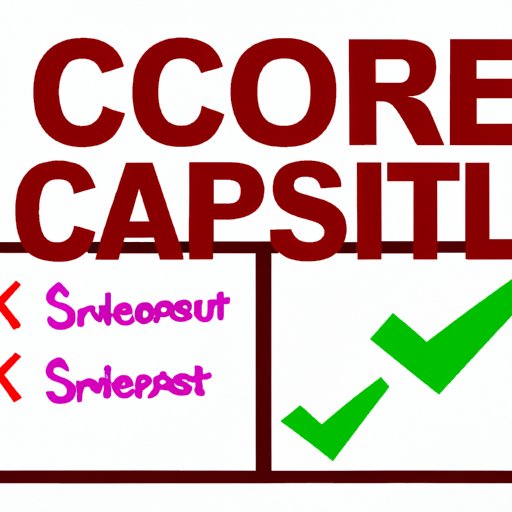
How to Boost Your Credit Score: A Comprehensive Guide for Anyone Looking to Improve Their Score
Having a good credit score is incredibly important for your financial future. Whether you’re looking to buy a house, take out a loan, or even get a credit card, your credit score will play a major role in determining your eligibility and the interest rates you’ll be offered.
If you’re struggling with a low credit score, don’t worry – it’s never too late to start improving it. In this comprehensive guide, we’ll cover everything you need to know about what affects your credit score, how to improve it, and what myths you should avoid.
1. 5 Simple Steps to Boost Your Credit Score Today
There are a few simple steps you can take right now to start boosting your credit score:
First, make sure you’re paying all of your bills on time. Late payments can have a significant negative impact on your credit score.
Second, check your credit report regularly to make sure there are no errors or inaccuracies. Disputing errors is a straightforward process and can quickly improve your score.
Third, keep your credit utilization low. This means not using too much of your available credit. A good rule of thumb is to keep your credit utilization below 30%.
Fourth, be strategic about opening new credit accounts. Applying for too many accounts in a short period of time can be viewed as a red flag to lenders.
Fifth, take advantage of credit-building tools such as secured credit cards and credit-builder loans.
2. Credit Score Boosting Hacks for Millennials
Millennials may face unique credit score challenges, but there are still plenty of tactics they can use to improve their score. Here are a few ideas:
First, take advantage of free credit monitoring tools. Many credit card companies and websites offer these services for free, and they can be incredibly helpful in keeping an eye on your score.
Second, consider consolidating debt through balance transfers. This can be an effective way to reduce your interest rate and pay off debt more quickly.
Third, be careful about closing old credit accounts. Doing so can negatively impact your score by reducing your overall credit history length.
Fourth, consider getting a co-signer for loans or credit accounts. This can make it easier to qualify for credit, and can also help you get better interest rates.
3. The Ultimate Guide to Improving Your Credit Score
If you’re serious about improving your credit score, it’s important to understand what factors impact your score and how you can improve each one:
First, payment history is the most important factor. Make sure you’re paying all of your bills on time, every time.
Second, credit utilization is also important. Keep your credit balances low in relation to your available credit.
Third, length of credit history is also a factor. The longer you’ve had credit, the better.
Fourth, opening new credit accounts can help improve your score, but it’s important to do so strategically to avoid damaging your score.
Fifth and finally, having a mix of different types of credit can also positively impact your score.
4. Credit Score Bootcamp: A 30-Day Plan to Raise Your Score
If you’re looking for a step-by-step guide to improving your credit score, here’s a 30-day plan you can follow to get started:
Day 1: Check your credit report and make note of any errors or inaccuracies.
Day 2-10: Begin paying all of your bills on time, every time.
Day 11-15: Reduce your credit utilization by paying down credit card balances.
Day 16-20: Consider opening a new credit account, but be careful to do so strategically.
Day 21-25: Focus on improving the length of your credit history.
Day 26-30: Mix in different types of credit, such as a credit-builder loan or secured credit card.
5. Credit Score Myths Debunked: What Really Helps (and Hurts) Your Score
There are plenty of credit score myths out there, so it’s important to understand what’s really true and what’s not:
Myth: Checking your credit score hurts your credit. Truth: Checking your own credit score is a soft inquiry and won’t negatively impact your score.
Myth: Closing credit accounts improves your score. Truth: Closing credit accounts can actually harm your score by shortening your overall credit history length.
Myth: Paying off a negative record will remove it from your credit report. Truth: Negative records generally stay on your credit report for 7 years, even if they’re paid off.
Conclusion: Take Action Today
Improving your credit score can feel overwhelming, but the truth is, there are plenty of steps you can take right now to start making a difference. Whether you’re just beginning your credit score journey or you’re a seasoned pro, it’s important to stay informed and be proactive when it comes to your credit score.





